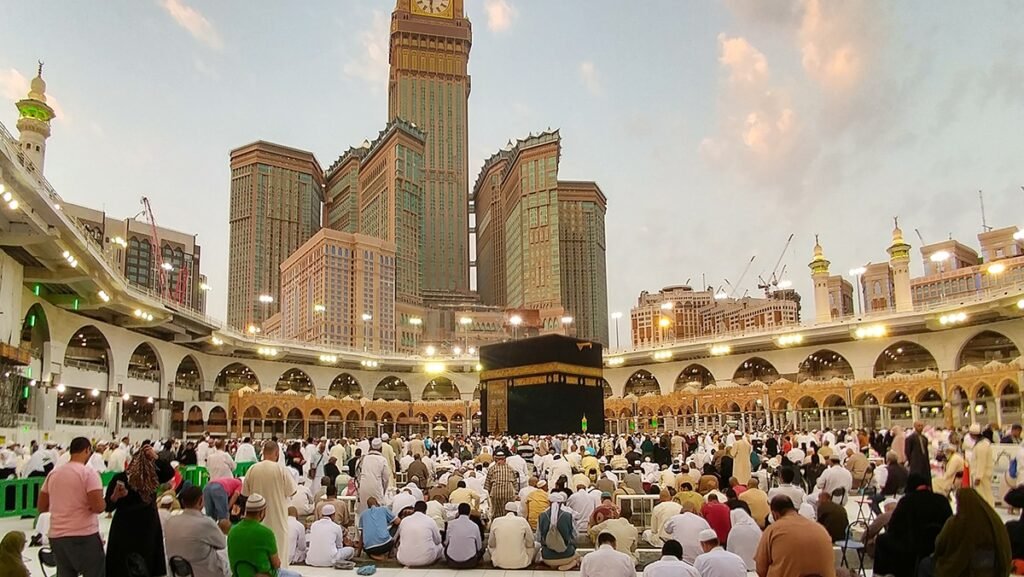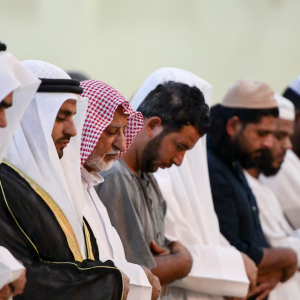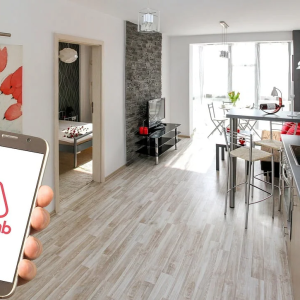Saudi Arabia is introducing a groundbreaking initiative just in time for the Hajj season. In a move that could revolutionize medical logistics during one of the world’s largest religious gatherings, the country has successfully completed pilot trials of drone medicine delivery for Hajj pilgrims.
The innovation, tested under the Ministry of Health’s supervision, aims to improve how fast and efficiently medical supplies reach pilgrims in need—especially in areas that are hard to access quickly by foot or vehicle.
Why Drone Medicine Delivery for Hajj Pilgrims Matters
Hajj is an annual pilgrimage that draws over two million Muslims from around the world to Mecca. The large crowds, high temperatures, and intense spiritual rituals can take a toll on the health of many attendees. From dehydration to chronic conditions needing ongoing medication, the medical needs are vast and urgent.

This is where drones can make a real difference. The drone medicine delivery for Hajj pilgrims project helps ensure that vital supplies—like insulin, heart medication, or emergency kits—can be delivered quickly to health workers or directly to pilgrims in remote or crowded areas.
According to Saudi authorities, this system could reduce delivery time drastically and reduce the burden on ground staff.

How the Drone Delivery System Works
The drones are designed to carry lightweight medical items and travel pre-programmed routes between distribution points and field hospitals or mobile units. These unmanned aerial vehicles are guided by GPS and monitored by trained technicians.
The Ministry of Health stated that in the trial runs, drones successfully transported several types of medicines and medical tools over short distances within crowded Hajj zones. All trials were monitored closely to ensure safety, timing, and accuracy.
The pilot project was conducted in the Mashaer region, which includes Mina, Muzdalifah, and Arafat—key locations during the Hajj pilgrimage.
A Vision Aligned with Saudi Arabia’s Tech Goals

This move isn’t just about improving Hajj healthcare—it’s part of Saudi Arabia’s broader strategy to embrace technology in public services. The drone medicine delivery system is part of the kingdom’s Vision 2030 plan, which promotes digital transformation in health, logistics, and emergency response.
Saudi Arabia has already shown its interest in drones through several initiatives, including drone surveillance, smart crowd management, and delivery logistics. The success of the Hajj drone trials signals that the kingdom is ready to scale these efforts.
The government plans to expand drone use beyond Hajj to include emergency health services in rural areas, especially during natural disasters or disease outbreaks.
Benefits for Pilgrims and Healthcare Workers
There are several clear advantages of drone medicine delivery for Hajj pilgrims:
- Faster Access: Drones bypass traffic and crowded streets, reaching destinations faster.
- Improved Coverage: Drones can access areas where ground transportation is slow or restricted.
- Lower Human Risk: Fewer people need to carry supplies through intense crowds and heat.
- Scalability: The system can be expanded quickly with minimal setup during peak pilgrimage days.
Healthcare staff have welcomed the initiative, noting that faster supply delivery means quicker treatment and less stress on overburdened medical teams.
Ensuring Safety and Compliance
While the system is promising, authorities are cautious. Each drone used in the trial had to meet strict airspace, safety, and privacy regulations. Saudi Arabia worked with aviation and communication experts to ensure drones didn’t interfere with flights or crowd movement.
Authorities also used secure channels to monitor drone flight paths, ensuring real-time tracking and intervention in case of system failure.
What Comes Next After a Successful Trial?
Now that the trial phase is complete, officials are considering scaling the program during the 2025 Hajj. If approved, hundreds of drones could be deployed to support more than just medicine delivery. Future uses may include transporting food, sanitizers, or even blood units.
Further testing is planned, with upgrades in drone capacity, navigation technology, and AI-based route management.
Health officials are also looking into integrating this system with mobile apps used by pilgrims. That way, a pilgrim in need could request help via an app, and a nearby drone could deliver assistance within minutes.
Voices from the Ground

Early feedback from Hajj workers and medical staff has been positive. Dr. Amani Al-Harbi, a field physician in Mina, said:
“The drone trial was impressive. We received medical supplies in under four minutes, compared to the usual 15 to 20. In emergencies, that time matters.”
Pilgrims who witnessed the drones flying above were also curious and hopeful. One Indian pilgrim, Farhan Siddiqui, remarked, “If this helps someone get the help they need faster, it’s a blessing.”
Global Implications for Pilgrimage Healthcare
If successful at scale, Saudi Arabia’s drone initiative could serve as a model for other large gatherings worldwide. From sporting events to festivals and disaster zones, drone logistics could become an essential part of emergency planning.
Several countries with similar religious events—such as India, Indonesia, and Iran—are watching this development closely.
Conclusion: A Smart Future for Hajj Healthcare
The success of this program marks a new era for how technology and tradition can go hand in hand. Drone medicine delivery for Hajj pilgrims is not just a technological upgrade—it’s a humanitarian step forward.
As Saudi Arabia continues to modernize services for pilgrims while maintaining the sanctity of Hajj, initiatives like this highlight how innovation can save lives and improve spiritual journeys.
The real test will be the 2025 Hajj season, where these drones may finally go from test flights to frontline helpers, serving millions during one of the most important religious events in the world.
Do follow UAE Stories on Instagram
Read More: UAE Gold Price Drop Brings Relief for Eid Shoppers This Weekend












